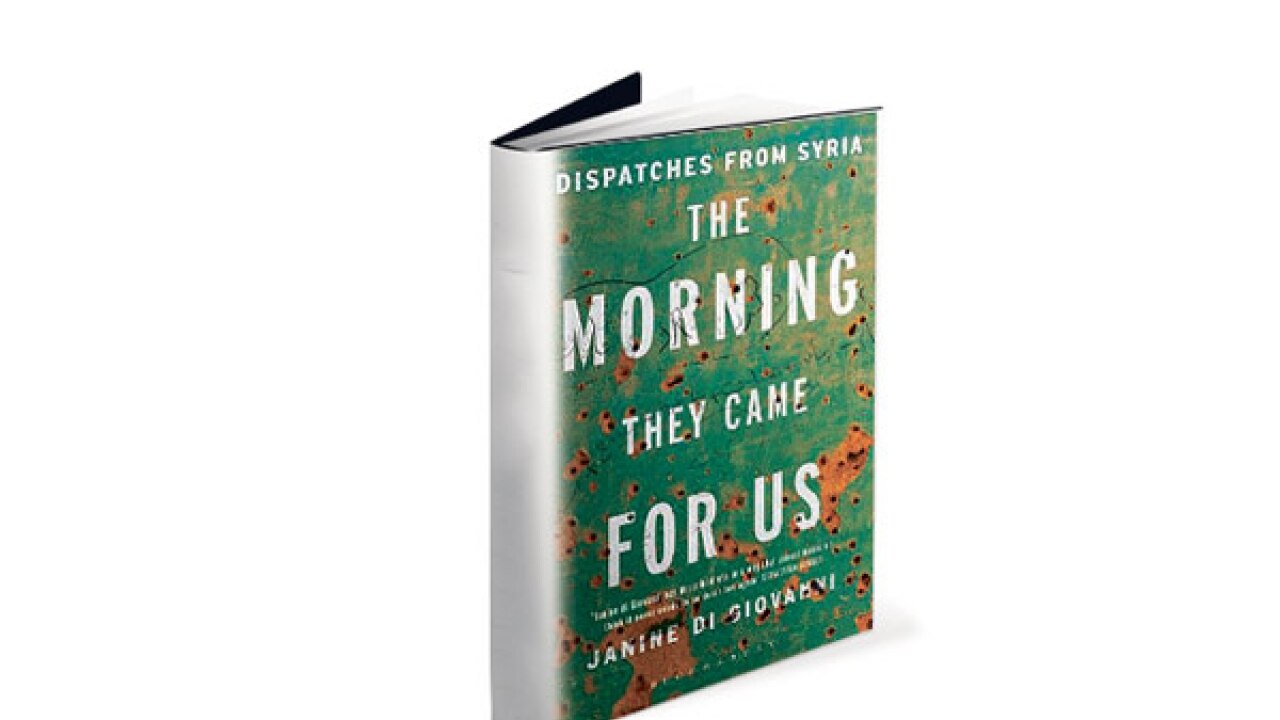
The Arab Spring was a talismanic moment when dreams of a new dawn of democracy swept through many Arab nations. In these lands, young citizens rose in unison to launch powerful, but peaceful protests against the decades-old tyranny of military-backed dictators. While Egypt has been spared the horrors of a civil war despite a constitutional coup by the country's armed forces, others like Syria, Libya and Yemen have not been so lucky.
In these countries, the hopes raised by the Arab Spring have been dashed: revolutions have been followed by counter-revolutions, civil war and descent into ever-increasing Islamic radicalisation. There is much concern about Europe's migrant crisis and worries about the continent's capacity to withstand the waves of Syrian migrants attempting to reach its vaunted shores. But who are these refugees? What are they fleeing from? Why would anyone want to leave their homeland for a new life in a land where they are unwelcome? These questions are answered in veteran war reporter Janine di Giovanni's book, The Morning They Came For Us: Dispatches from Syria.
The world paid scant attention when Syria's unpopular dictator, Bashar al-Assad, cracked down on peaceful pro-democracy protesters, detaining and torturing thousands of these activists since early-2011. The crackdown spurred more hateful and violent protests, mostly of a sectarian nature, and as hopes of unseating Assad through a peaceful movement faded, the sound of guns began to speak up. Influential nations like the US, Russia, Iran, China, Saudi Arabia and Qatar aligned into pro- and anti-Assad camps and have fuelled and fed a veritable killing frenzy through an unending supply of lethal weaponry. The nationalist Free Syrian Army (FSA), which initially took up cudgels against Assad, failed to make headway through 2012 (the major period that Giovanni has chronicled), after initial gains. The nationalism of the FSA soon gave way to sectarianism; the chasm between Syria's Ahlawite and Sunni sects widened and sucked in other minorities like the Yazidis and Christians. As the war dragged on, nationalist rebels turned towards Islamic radicalism for ideology and motivation. The FSA has now largely dissolved into the al-Qaeda-affiliated Nusra Front or the Jabhat al-Nusra. The misfortune of Syria is that the radicalisation did not stop here. No one foresaw the coalescing of the Sunni sectarian divides in Iraq and Syria, the birth of the Islamic State, or its territorial ambitions that envisions the rebirth of a Caliphate.
Giovanni takes us deep into the psyche of the Syrian populace and produces a gut-wrenching account of the spiraling violence that commenced in late-2011 and continues to this day. Among those she has interviewed are activists tortured and raped in government prisons. The women among them struggle with the trauma of rape, and the inability to seek help in a conservative society that places a heavy premium on the woman's honour.
Giovanni also managed to travel to the frontlines of the government's war and even slip behind rebel lines to meet people in war-ravaged Aleppo and Homs. Amid the incessant bombing and sniper fire, she meets fatigued doctors in decrepit or makeshift hospitals, tenacious women holding out on a limb and a prayer and a generation of traumatised children. Giovanni also traipses into the lives of the Damascus elite, most in denial of the civil war that had reached the city's outskirts. Even when activists were being illegally detained and the army had started its brutal reprisals in rebel-held areas, these citizens could see no evil.
A war reporter is a rare breed in today's journalism where incessant cost-cutting, online engagement, and cutthroat competition for the ever-narrowing reader and viewer attention has forced many publications to cut corners.
Beyond journalism, a war reporter's dispatches are abject testimonies of humanity at war with itself. The apocalyptic turn to the Syrian war from 2013, one in which journalists have also been targeted and executed, has prevented courageous scribes like Giovanni from going back. In Latakia, Assad's stronghold, there once lived a young girl, Nada, who volunteered in the peaceful Arab Spring protests. What Assad's forces did to her is revealed in painful detail by Giovanni. The violence inflicted on one individual by the all-powerful State becomes a metaphor for the failed Syrian state and its loss of legitimacy. Assad has finished off the Syrian multicultural experiment. Syria is dead. For one family to stay and reign, 13 million Syrians have been displaced. Now, what do you call a trade-off like that?